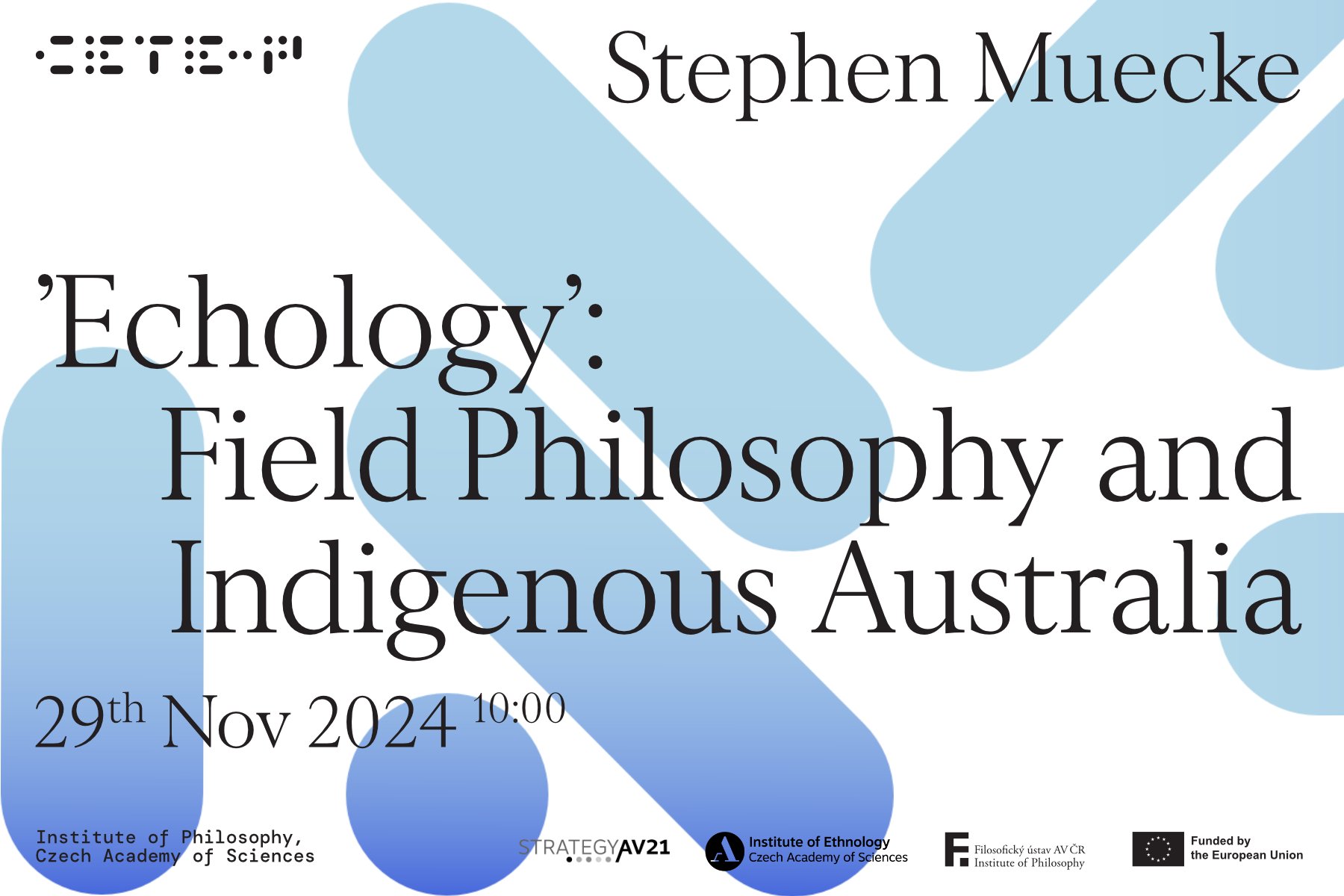
Echology: Field Philosophy and Indigenous Australia
Echology: Field Philosophy and Indigenous Australia
Fri Nov 15 17:28:38 CET 2024

Lecture with Stephen Muecke on Friday, 29. 11. 2024, 10:00 CET
Speaker Bio:
Stephen Muecke is a Fellow of the Australian Academy of the Humanities, Emeritus Professor at the University of New South Wales, and Senior Research Fellow in the Nulungu Research Institute of the University of Notre Dame Australia. His longstanding collaboration with the Goolarabooloo people of the Kimberley region has produced works such as Reading the Country: Introduction to Nomadology (1984) and The Children's Country: Creation of a Goolarabooloo Future in North-West Australia (2021). A prolific writer, translator, and thinker, Muecke has contributed significantly to interdisciplinary approaches in philosophy, culture, and environmental humanities.
Abstract:
Echology is a neologism using the Greek ἔχω [ékhō, 'to have'], rather than oikos ['house'] forming both 'ecology' and 'economy'. It is an alternative concept to ontology, the study of existences or beings, and is here proposed to designate modes of belonging.
For that is what one seems to encounter carrying out field philosophy in Indigenous Australia. There is much talk of attachment: people 'belonging' to one another through kinship, 'holding onto' culture, having inalienable connections to Country: there are multiple echologies. Bruno Latour seemed to suggest this, following Gabriel Tarde in the initiation of a philosophy of relations, which replaces the 'being' of philosophies of existence, with the 'having' of attachments. And in Indigenous Australia there seems to be little existential talk—pointless, really. In the vernacular, we talk rather of what something 'has got going for it', a process echology. In the process of describing what something is, we usually end up listing its attachments, rather than fixing on its identity or essence: what it needs to get along in its world in the form of its attributes and extensions.
The prime example in Indigenous Australia is its famous totemic system: kinship extended to the non-human world. Here we can oppose totemic relations to symbolic ones (and early anthropology mistakenly saw totems as arbitrary symbols or representations). Totemic relations have vital continuities, rather than representational gaps. And here we can follow Deborah Bird Rose's revisiting of the concept as 'a common property institution for long-term ecological management'. It seems there is a scientific (reliable) and philosophical (conceptual) solution here: Indigenous Australia may have invented totemism as an extended multispecies kinship system that makes rights and responsibilities in relation to non-humans explicit in their Law.
Event details:
- Duration: Approximately 90 minutes
- Language: English
- Hybrid format:
- Onsite: Institute of Ethnology, CAS
-
Online: Via MS Teams - HERE (Meeting ID: 312 538 292 423, Passcode: NnZCEc)
Poster with invitation can be downloaded HERE.

